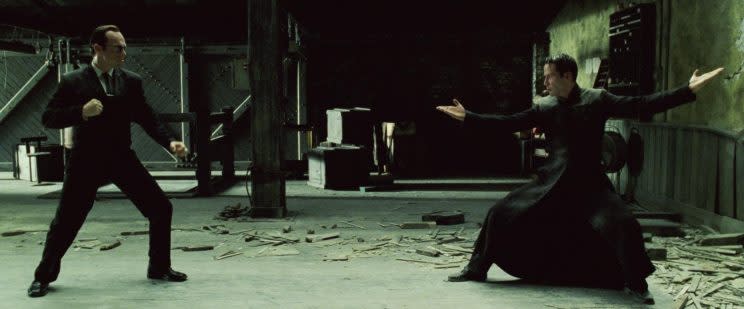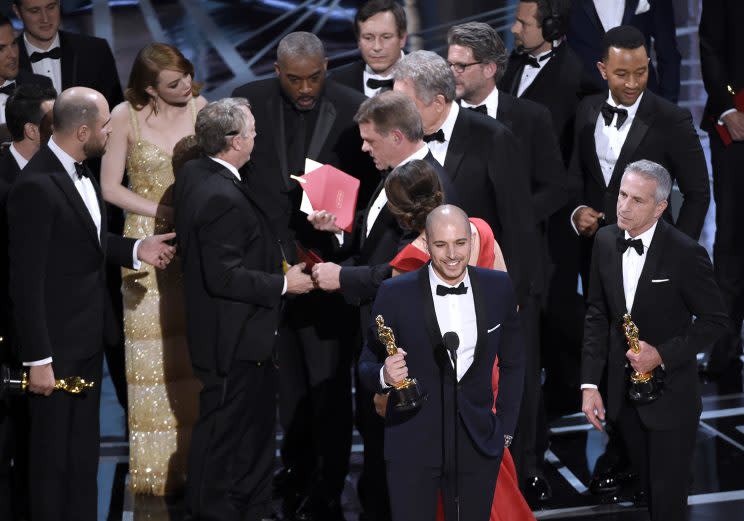Was the Oscars mix-up a ‘glitch’ which proves we are living in The Matrix?

We are certainly living in very strange times: first Brexit, then Trump, then the unthinkable mess-up of giving the wrong film the Oscar.
Could it all be a ‘glitch in the Matrix’ – proof that we’re all living inside a computer simulation, run by people far more advanced than ourselves?
Glitches at the World Series, Super Bowl, US and UK elections, and now the Oscars:
Hey @elonmusk, I think the simulation is in beta.
— Paul Musgrave (@profmusgrave) February 27, 2017
People have suggested it semi-seriously – and one expert has chipped in with her opinion.
The idea that we might be living in the Matrix has gained serious traction over the past couple of years.
Several tech billionaires are so convinced that we’re living inside the Matrix that they are actually funding research to help us escape the simulation, according to the New Yorker.
Tech visionary Elon Musk claimed last year that there is only a ‘one in billions’ chance that our reality is actually real.

Musk, speaking at Code Conference 2016, said that given how quickly games were evolving, that at some point in the future, there would be billions of simulated worlds running at once.
That means there will be so many simulations that the odds of being in the one, real reality are extremely low, Musk said – ‘one in billions’.
But Harvard physicist Lisa Randall disagrees – when asked if the Oscars mix-up is proof that we’re inside the Matrix, she said, ‘At this point, we cannot prove that we do or don’t live in a simulation. More to the point, there is no reason to believe that we do.
‘However, we can pretty much be sure that people will do amazing things and they will also mess up in spectacular ways.”
Randall maintains that the basic idea is flawed – because no technologically advanced species would be interested in simulating life on Earth in 2017.
She said, via Science Alert, ‘It’s just not based on well-defined probabilities. The argument says you’d have lots of things that want to simulate us. I actually have a problem with that,” she said.
‘We mostly are interested in ourselves. I don’t know why this higher species would want to simulate us.’

 Yahoo News
Yahoo News 


